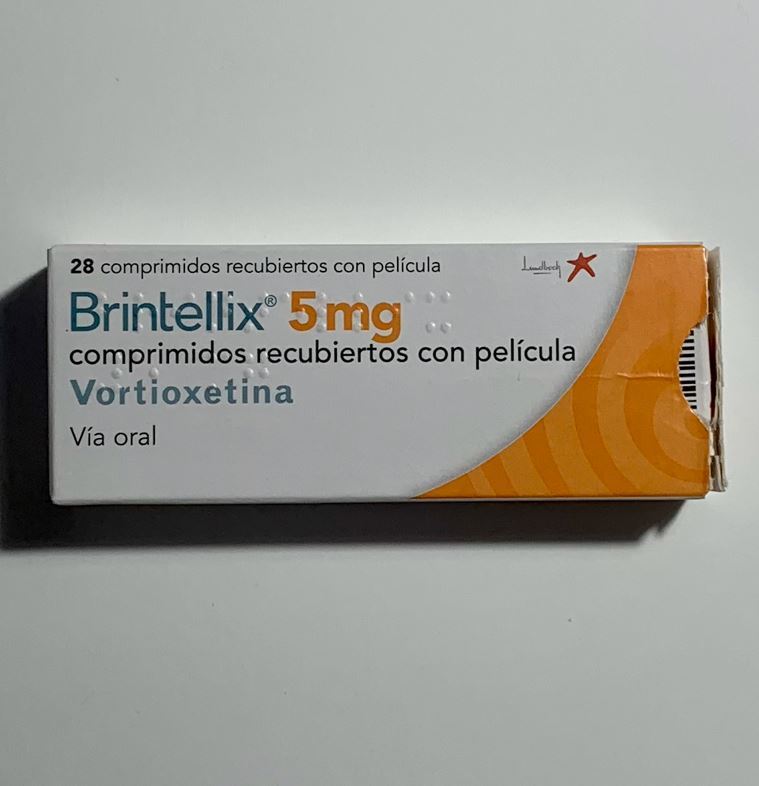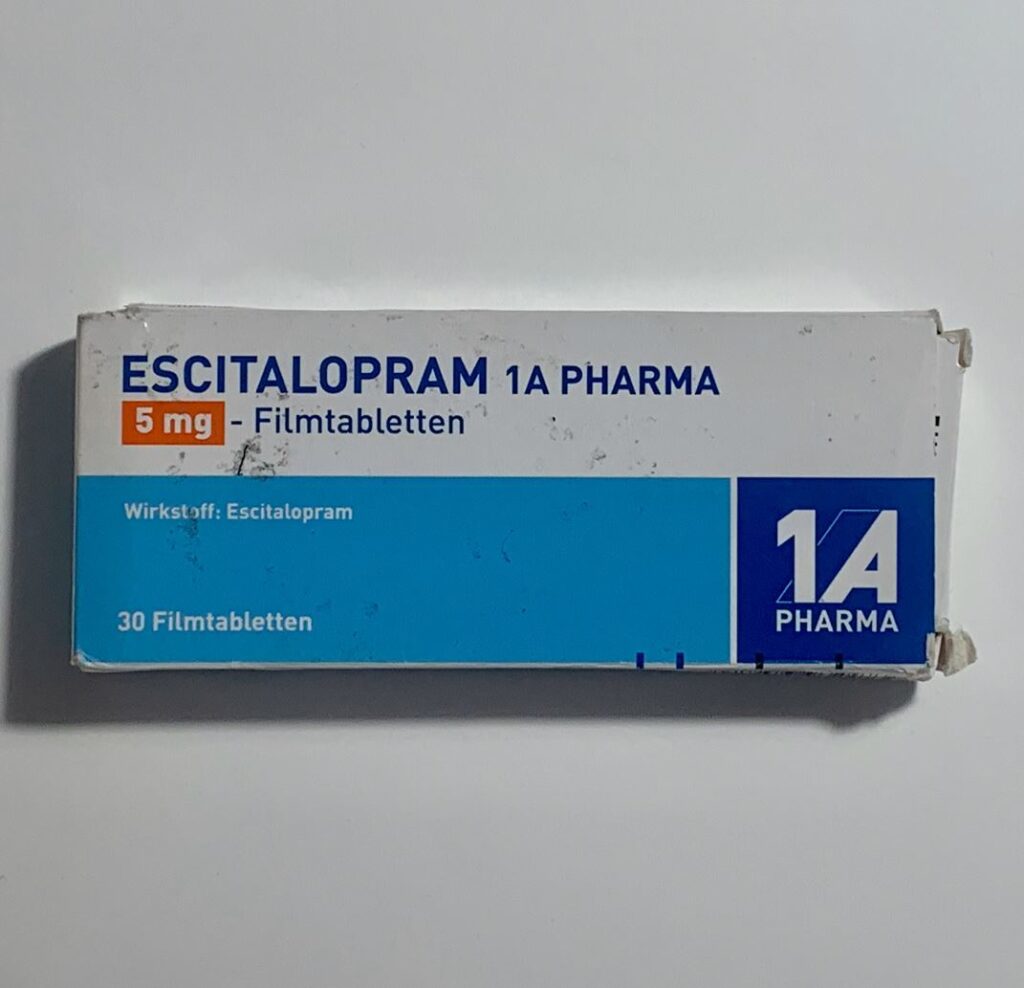Vortioxetine is an SSRI – though not a classical one. It is the newest SSRI brought to market. Even though people’s reactions to drugs differ, the unique properties of vortioxetine make it, in my opinion, a decent choice as a first-line antidepressant.
Even though it has side effects similar to other SSRIs, these seem less in magnitude. It has a less severe effect on sexual function, less emotional blunting, less weight gain, and a lower incidence of insomnia.
Uniquely, vortioxetine seems to have nootropic effects that are thought to be somewhat independent of its antidepressant effects (and its manufacturer Lundbeck did an excellent job at marketing that). However, whether that is true or clinically relevant is currently not fully known.
The major downsides are that it is not very effective in anxiety (presumably the other side of the coin of not causing much emotional blunting), and its price – it still runs under patent and is therefore quite expensive.
Personal experience
A couple of years ago, I was on a low dose of vortioxetine (5mg) for about 9 months. I started using it at a time when I was in a dark place. I had just finished my biggest exam, and the weeks before were incredibly stressful and brutal. I had just moved out of my apartment and felt incredibly lost. I could not think clearly and I started to question myself, the path I was on, and I regretted a number of bad choices I made.
Even though from the outside it did not seem this way, I wholeheartedly believed that my life was over and it was screwed for good. I knew with certainty that it would never get better and there was nothing I could do about it.

Although I have not been officially diagnosed, in hindsight this may have been a major depressive episode. Major depression is not just some made-up term for people having a bad day – it is a serious mental state, characterized by a severe imbalance in central gene expression and neurotransmitters, which makes the individual emotionally unstable, unable to focus or to think clearly, kills joy, and removes interests (sometimes including in one’s own survival).
The way I see it when individuals commonly refer to “depression,” they essentially mean a persistent state of long-standing unhappiness, gloominess, little joy, and just overall not being satisfied with their lives, which is quite different from what doctors mean by depression – a depressive episode as a biological mechanism characterized by a significant deviation from baseline. I discuss this in more detail here: What Kind Of Antidepressant Should I Choose?
Even though I had come on and off a number of drugs many times, I now lacked the self-confidence to treat myself with antidepressants out of fear that I would make things worse. After a lot of research and hesitation, I talked to the head of the psychiatry department, and he assured me that vortioxetine was an excellent choice. This reassurance meant the world to me.
Even though I was told to start at 5mg, I started at just 1.25mg because I am a CYP2D6 poor metabolizer (and frankly, because I was quite scared). I could already feel its effect on the first day – and I am quite sure it was not a placebo effect.

The neurobiochemical alterations brought about by vortioxetine changed my outlook on life and the world shockingly quickly. Even though the episode lasted for about 3-4 months, I forgot how bad it was within just a period of a few days, and after a few weeks, I had gotten used to my new state, and my “old” state seemed like a distant dream. This seems to be a common theme.
This starkly reminded me again of something I had known for a long time: I am a biological creature, and my emotions, thoughts, outlooks, and thinking patterns are at the mercy of my neurobiochemistry and its changes.
Depression is scary because when I was in the middle of it, I could not imagine there being any hope or any possible way I, or my life, could recover. I could have been feeling great just a few days ago but once I was at the bottom that did not matter (it worked the other way too).
Given that people were not able to tell that I was somewhat depressed (unless I had told them), this also made me viscerally realize that behind everyone I interact with, there is a very human person, who is constantly fighting battles I know nothing about.
In part thanks to vortioxetine, I was back on track within a short amount of time. After not even a week, I had hope again. Six months later, I felt that vortioxetine had mostly done its job and I was again in a good place (mentally, physically, life circumstances). After 3 more months, I tapered off.
Eventually, I switched over to moclobemide (discussed here), which I believed to be more “natural” and to have a lesser effect on my emotions, while still giving me mood-boosting and resilience-enhancing benefits.
For clarification, my little funk was presumably nowhere near close to the depths experienced by individuals suffering from severe major depression. Severely depressed individuals often do not have enough energy to do even the simplest tasks, which is different from what I had gone through.
Subscribe to the Desmolysium newsletter and get access to three exclusive articles!
How it works
Vortioxetine is an SSRI plus a serotonin receptor modulator. As an SSRI, it increases serotonin levels throughout the brain. Serotonin plays a vital role in mood, memory, appetite, sleep, pain perception, and sexual desire. Serotonin is more thoroughly discussed here: A Brief Introduction to Neurotransmitters.
There is dense serotonergic innervation of neural networks responsible for initiating the fear response (e.g., subareas of the amygdala, orbitofrontal cortex, anterior cingulate cortex, etc.). Given that serotonin is mostly an inhibitory transmitter, increasing serotonin levels in these networks downregulates them, inducing a state of calmness and contentment.

In addition to blocking the serotonin transporter (SERT) like other SSRIs, vortioxetine also modulates several serotonin receptors, either activating (5HT1A), partially activating (5HT1B), or inactivating them (5HT3, 5HT7).
While the exact mechanism remains to be established, the most relevant is presumably the antagonism of the 5HT3 receptor, which is the only monoamine receptor that is not a GPCR but an ion channel. The 5HT3 receptor is frequently located on GABAergic interneurons and blocking this receptor has a variety of complex and mostly disinhibiting effects on a number of brain networks.
Among other things, this is thought to boost the release of a variety of neurotransmitters, among them an elevation of glutamate levels and an elevation of dopamine in the prefrontal cortices. Together, these are thought to underlie some of the unique features of vortioxetine.
The increased glutamate and dopamine are thought to be responsible for its pro-cognitive and “brain fog”-lessening effects (although how clinically relevant these are is still unknown). Furthermore, compared to other SSRIs, vortioxetine seems to cause a little less emotional blunting, has a lower incidence of sexual dysfunction (about 50% vs. 75%), is somewhat activating (but not stimulating), and has a lower incidence of insomnia.
Unfortunately, vortioxetine causes much more nausea than other SSRIs, which is due to the direct interaction with a number of serotonin receptors located in the gut. For most people, nausea seems to go away quite shortly after one or two weeks.
A couple of years ago, I decided to take a very small dose of escitalopram (2.5mg) for self-improvement purposes, which I now realize was a dumb idea. Stress and anxiety were completely gone. I am not an anxious person so even a microdose of escitalopram was highly effective in this regard. Furthermore, I became more rational – but at the price of becoming less emotional. After realizing that it had crushed my emotions for my then-girlfriend, I stopped.

To me, vortioxetine felt quite different. While escitalopram was numbing, vortioxetine seemed more activating and enriching with a somewhat lesser effect on my emotions (at least as far as I could tell).
Even though vortioxetine works slightly faster than most other SSRIs, maximum efficacy is not reached for weeks until certain receptor types are re-regulated, the expression of a number of genes has changed, significant neurogenesis in the hippocampus has happened, and new thinking patterns have been established.
Other SSRI + serotonin receptor modulators
I discuss the science and my thoughts on SSRIs here: The Upsides & Downsides of SSRIs
Next to vortioxetine, there are two other drugs that unite SSRI function plus serotonin receptor modulation. I briefly discuss them but have tried neither.
Vilazodone
Vilazodone is quite similar to vortioxetine. It is an SSRI plus a serotonin receptor modulator, mainly a 5HT1A partial agonist. Like vortioxetine, vilazodone causes less emotional blunting and sexual side effects than classical SSRIs. Vilazodone was approved two years before vortioxetine.
Nefazodone
Nefazodone, also an atypical SSRI, is an antagonist at 5HT2A and 5HT2C receptors. From what I could gather, it is more effective than vortioxetine in cases of depression + anxiety. Like vortioxetine and vilazodone, nefazodone causes less emotional blunting or sexual side effects than classical SSRIs.
Nefazodone seems to be widely underused because of the extremely rare risk of fulminant liver failure (1/300.000 patient-years). In many countries, the manufacturer discontinued its sale because of this reason, although it is slowly getting reintroduced as some patients claimed: “It is the only antidepressant that has ever worked for me” (though most have not tried MAO inhibitors).
However, most doctors stopped prescribing it. While doctors want to do what is best for their patients, above all, they want to do what is best for themselves (which is first and foremost not getting sued – understandably).
Because of this, doctors would rather give 100.000 people emotional and sexual problems compared to giving one single person fulminant liver damage. As psychiatrist Scott Alexander says, when it comes to evaluating risks, most doctors are not particularly good – or a little too good.
Other experience reports
For a discussion of the molecular correlates of well-being, and links to accounts of various related molecules I have experimented with, read here.
For a full list of experience reports click here.
Related articles
Sources & further information
- Anecdotes: Drugs.com – Vortioxetine
- Scientific review: Vortioxetine: a novel antidepressant for the treatment of major depressive disorder
- Scientific review: Vortioxetine for depression in adults
Disclaimer
The content available on this website is based on the author’s individual research, opinions, and personal experiences. It is intended solely for informational and entertainment purposes and does not constitute medical advice. The author does not endorse the use of supplements, pharmaceutical drugs, or hormones without the direct oversight of a qualified physician. People should never disregard professional medical advice or delay in seeking it because of something they have read on the internet.
